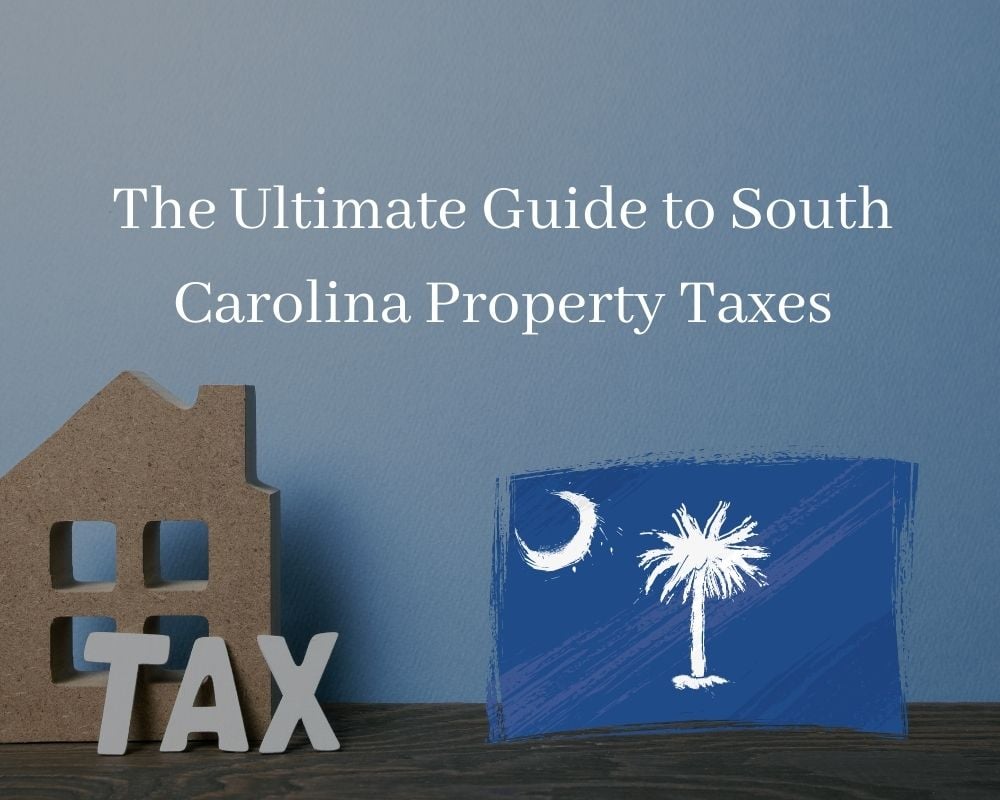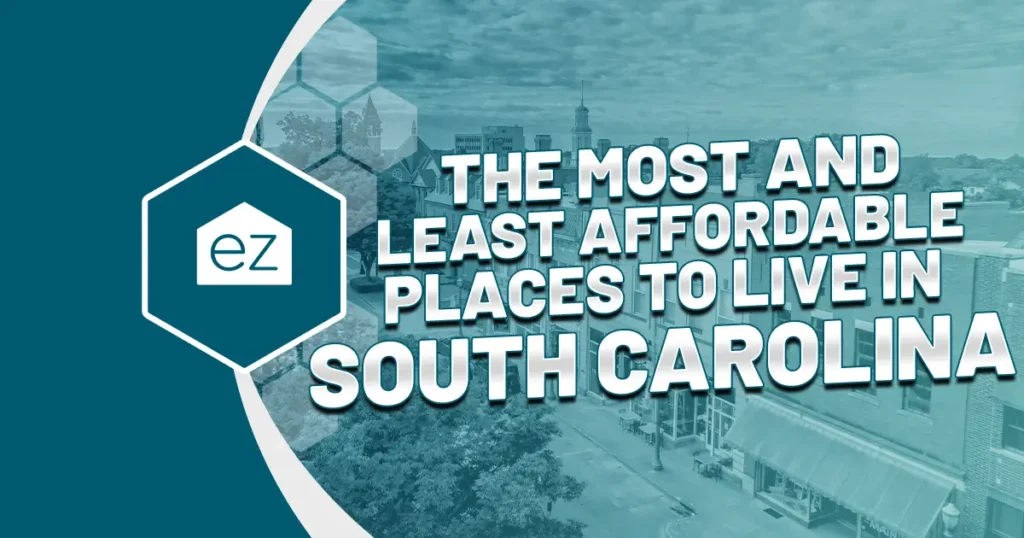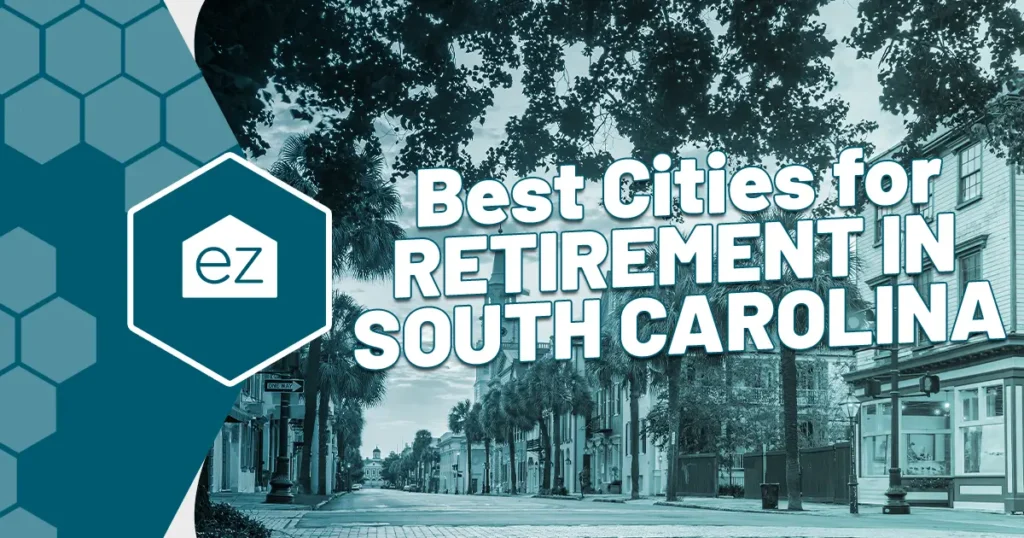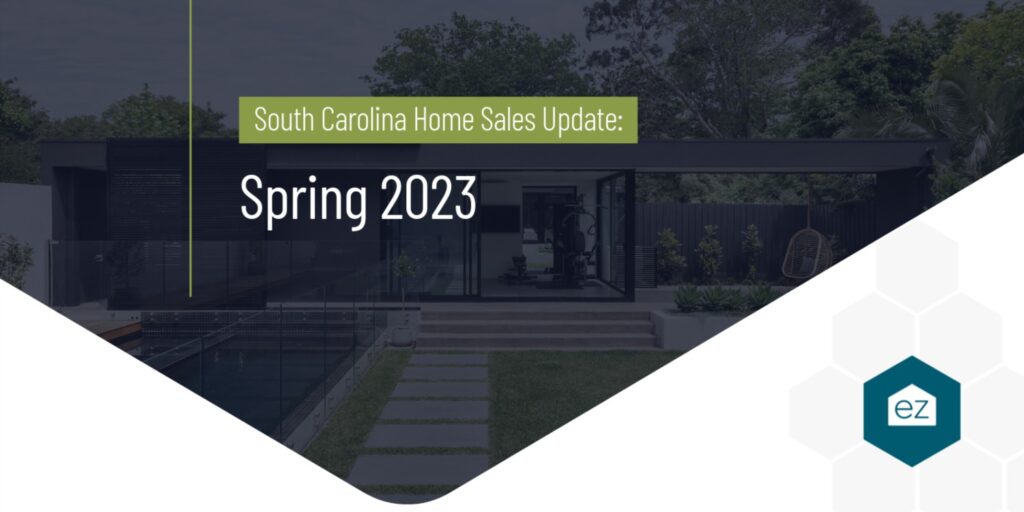The Ultimate Guide to South Carolina Property Taxes
The Ultimate Guide to South Carolina Property Taxes
Welcome to South Carolina! We are happy to have you here. One common question our real estate team receives from out-of-state new residents is about property tax rates. Understanding the rates is essential, as property taxes impact your monthly housing costs or how much you need to set aside each year. A high property tax bill can add thousands over time to your overall housing costs.
This guide breaks down everything you need to know about South Carolina property taxes. Find the resources you need to figure out what your property tax bill might be.
About South Carolina Property Taxes
South Carolina’s property tax was first initiated in 1915. Today, it represents about 20% of all state and local taxes. It serves as the primary revenue source for the state’s public school system.
The local government collects the property taxes, not just to pay for public schools, but also police and fire protection, public libraries, and other essential government-run services.
How South Carolina Property Taxes Compare
The good news about living in South Carolina is we have one of the lowest property tax rates of any state. The national average as of 2022 was 0.99%. South Carolina had median effective rate 0.563%. As you can see, that’s almost half the national average. As of 2023, only five other states beat South Carolina for a lower median property tax paid as a percentage of housing value.
The median home value in the state during 2023 was $181,800. This means that the median property tax in South Carolina was $1,024 that year. For perspective, the average American household spent $2,690 on property taxes for that taxing year.
The precise property tax amount paid will vary according to which county you live in. You may find your particular median property tax is slightly higher or lower than 0.56%.
Looking closer at some of the individual counties in South Carolina, Horry County has the lowest average effective property tax rate at 0.42%. The median home value was $187,800, making the median annual property tax payment $787. The other low tax rate counties include Darlington (0.43%), Oconee (0.45%), and Pickens (0.45%).
Meanwhile, the highest average effective property tax rate was in Hampton County, 0.93%. The median home value was $76,000, so the median annual property tax payment was $704. The other high tax rate counties include Allendale, Richland, Bamberg, and Williamsburg.
However, the tax rate numbers don’t tell the whole story. You have to take into account what the effective property tax rate is along with the property values. For example, Beaufort County has the highest average property tax paid by homeowners in South Carolina, paying an average of $1,970 in property taxes. Beaufort County has an average effective rate of 0.64%, only slightly on the higher side of average for property tax in South Carolina. Meanwhile, Allendale County has some of the lowest-paid property taxes in the state, collecting an average of $391 per year. It also has lower housing values.
What Property Taxes Do You Pay Each Year
Local governments administer and collect the property tax with the assistance of the South Carolina Department of Revenue (SCDOR). Each county will have its method of assessing and collecting taxes. For this reason, there is not a uniform tax rate across South Carolina.
About two-thirds of the county-levied property taxes go towards supporting public education. In addition, municipalities can levy taxes on a property inside its borders for services provided by that municipality. Counties, cities, and school districts are authorized to impose ad valorem taxes on any real and personal property. Some jurisdictions will have additional millage rates.
The property tax bill breakdown goes like this:
- County base millage rate: This is the countywide millage rate levied for paying county government services such as libraries, government operations, sewers, hospitals, and other programs.
- School district millage rate: This is the rate that each school district sets to fund its operations. Primary residential owner-occupied properties are exempt from the school property tax and do not pay a school district millage rate.
- Municipal millage rates: This will be the millage rate for any city or towns that assesses a property tax.
- Special fees: There may be a special specified tax district to support fire services, water, and sewer, road maintenance, recycling, or recreation. The purpose and location of a special tax district millage will be listed on the tax bill and county tax collector website. Some tax districts charge a flat fee or dollar amount for the service instead of a millage rate.
What Are Millage Rates & Where To Find Them
We express tax rates in mills. One mill is equal to $1 of tax per $1,000 in assessed value. The effective tax rate represents what homeowners actually pay as a percentage of the home’s assessed value. So if the millage rate is 0.55, then the homeowner pays 0.55% of the home’s assessed value.
Specific millage rates vary between the different South Carolina counties. Check out this resource to see what the latest property tax rates are by county.
A local governing body can increase its base millage rate for general operating purposes, but only with certain conditions. You can read about millage rate increase limitations and see resources for counties, municipalities, and school districts regarding caps on any property tax increases due to millage rate rises.
How Is South Carolina Property Taxed?
South Carolina determines property taxes by looking at the market value of an owner-occupied legal residence. These residences are assessed at 4% of fair market value. The market value is determined from periodic countywide reassessment. The local millage rate set by the government, municipalities, and special tax districts is applied as your tax liability.
Your millage rate is set by your local government and will vary throughout the state.
Here is a breakdown of how your property taxes are determined for a primary resident receiving the 4% rate and the school credit:
|
Take the fair market value of the home |
$100,000 |
|
Multiply by the assessment ratio |
x 4% = |
|
This is your assessed value |
$4000 |
|
Multiply by your local millage rate |
x .0824 0.2026(Horry County) – 0.1202(School credit) |
|
This is your property tax due |
$320 |
Your home value is reassessed once every five years. Expect your property taxes to change if you reside in that home for that duration.
A data collector from the tax assessor’s office in your county will visit your property. They measure the structures and notate information about your home, such as if the structure has a swimming pool, a garage, number of floors, its construction type, and other relevant details. The appraiser considers how this information compares to other properties selling in the general area and how much it would cost to replace the property at current costs.
In South Carolina, increases in market value as determined by the county assessor’s reappraisal are capped at 15%. However, that cap lifts whenever there is a transfer of property or if significant changes are made to the structure.
Your county is required to mail you a property tax assessment notice if your property’s fair market value has increased by $1,000 or more. These assessment notices are sent to the property owner by December 31 of the prior year. The assessment notice is not your tax bill, but it is there to notify you of the change in your property’s value, and therefore a change in the upcoming property tax bill.
Tax bills are typically mailed to the homeowner in October and must be paid by January 15.
Applying for Primary Residence Tax Rate
If the home is your primary residence, be sure to take advantage of a tax break written into South Carolina’s Constitution. Your legal residence is only to be assessed at 4%. However, if the home is a second home or not a primary residence, it is taxed at 6%.
Securing this lower tax rate is the responsibility of the homeowner. Complete an application with the local county tax assessor as soon as you move into your house. Every county tax assessor has different instructions for applying for the resident property tax. Here are some examples from Richland County, Horry County, and Spartanburg County.
Even though each county has a different application process, all will want proof that this home is your legal primary residence. This proof could include things like a South Carolina driver’s license and motor vehicle registration showing the property address or a voter registration card.
The primary resident tax application can be filed anytime before January 15, which is when taxes are due, but it’s best to do it as part of moving into your new home. That way, you don’t forget and are surprised when your tax bill arrives.
Once you file this application, you don’t need to do it again unless the property’s ownership or its use changes.
Figuring Out Property Tax For Your Home
Since the millage rates will vary between the different South Carolina counties, check in with the officials of the particular county to estimate your property tax bill.
Keep in mind if you are buying a second home, your property tax rate will be assessed at 6% fair market value. In addition, the exemption for school operating purposes does not apply to a second home.
Visit this resource on South Carolina county property tax rates to find updated individual County information.
Once you have data, you’ll add together the county-based millage rate, School District millage rate if applicable, any Municipal millage rates, plus other special mills. Taken together, this will be your total millage rate for a specific address.
Next, determine the assessed value of the property and multiply it by the assessment ratio. For a primary residence, this will be 4%. Apply the total millage rate, and you have estimated the property tax.
Property Tax Exemptions
South Carolina does offer a homestead exemption for property taxes. If you are 65 or older, legally blind, or permanently and totally disabled, and you have resided in your South Carolina home for a full calendar year, you can be eligible for a $50,000 homestead exemption from the value of your home.
In other words, if you qualify, and your home has a fair market value of $100,000, deduct an additional $50,000 from the value. You’ll be assessed the remaining $50,000 of value.
The homestead exemption credit continues to apply to all remaining taxes except for school operating taxes, which were already exempt for primary residences.
If you qualify for the homestead exemption, you need to contact the county auditor’s office and make an application for the homestead exemption.
Who Can Help Me Figure Out Property Taxes?
South Carolina has different resources available to help you estimate residential property taxes. Your professional real estate agent can be an excellent resource for pointing out exactly who to contact in the area you are searching for a home. They may also have insights about school district millage rates and any special tax districts for the particular neighborhoods you are interested in purchasing.
The local county tax assessors are also a good resource. Some counties have an online tool where you can search a specific address and find information about its property tax rates. We also recommend looking at data from the SC Department of Revenue and referring to this listing of county tax assessors.
We are also happy to help at EZHomesearch. Simply contact us, and we will point you in the right direction for property tax information.
This information is for information purposes only and is not intended as tax advice. Please consult with a certified taxing professional for your tax questions.
Updated October 2023
Start Your Home Search
Preston Guyton
Share this Post
Related Articles
Living in South Carolina
The Most And Least Affordable Places to Live In South Carolina
Living in South Carolina
Best Cities for Retirement in South Carolina
Living in South Carolina





